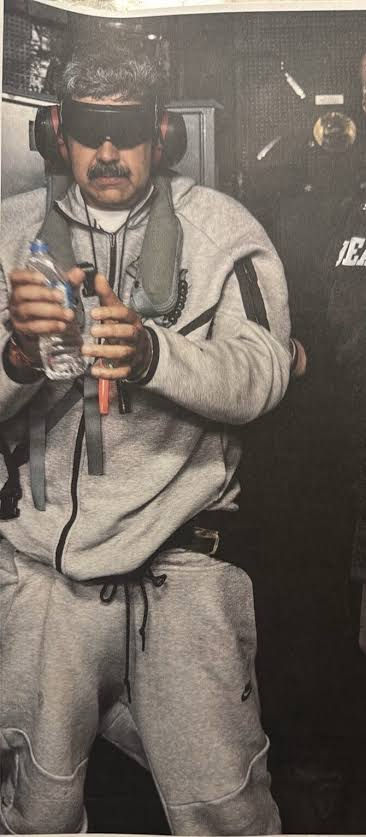Who is Erdogan, the president of Turkey that has been more than 20 years in power?
- Sebastian Palacios.

- May 19, 2023
- 4 min read

Recep Tayyip Erdogan was born on 26 February 1954 in a poor conservative Muslim family and raised in a marginalized neighborhood in Istanbul, the biggest city of Turkey. As a teenager, Erdogan sold bottles of water to drivers stuck in traffic and worked as a street vendor selling bread rings. Later on, he played semi-professional football and the big club of Fenerbahçe wanted him, but his father opposed this to happen fearing it would have a bad influence on him.
Erdogan attended Muslim schools where he could show his oratory skills and because he was especially good on his knowledge about the Quran, his classmates called him "the teacher". He won first place in a poetry-reading competition organized by the Community of Turkish Technical Painters, describing it as "a key episode that gave him courage to speak in front of the masses".
In 1976, Erdogan engaged in politics by joining the National Turkish Student Union, an anti-communist action group. In the same year, he became part of the Islamist National Salvation Party (MSP), which promoted Turkish nationalism with strong religious motives. There, he climbed positions in districts located in Istanbul, with its 15 million inhabitants. Eventually, Erdogan reached the highest positions and became the Mayor of Istanbul between 1994 and 1998.
During this period, Erdogan was very efficient in office. The water shortage of the city was solved by laying hundreds of kilometers of new pipelines; the garbage problem was solved with the establishment of many recycling facilities; air pollution was reduced through switching to natural gas, and public buses became environmentally friendly. The city's traffic and transportation jams were reduced with more than fifty bridges, viaducts, and highways. At the same time, a major portion of the city's debt was reduced.
While serving as Mayor of Istanbul, Erdogan was arrested in 1998 for reciting a poem written by Ziya Gökalp, a pan-Turkish activist of the early 20th century. His recitation included verses translated as "The mosques are our barracks, the domes our helmets, the minarets our bayonets and the faithful our soldiers". These lines are not in the original version of the poem but were published in some state-approved books. Under the Turkish penal code, this was regarded as an incitement to violence and religious hatred. Erdoğan was given a four-month prison sentence and was forced to step down from his political position.
As a response, Erdogan founded in 2001 the Justice and Development Party (AKP). He realized that a strictly Islamic party would never be accepted as a governing party by the state structures and would not be popular enough. Instead, the AKP emphatically placed itself as a broad democratic conservative party with new politicians from the political center, while respecting Islamic norms and values, but without an explicit religious program. This turned out to be successful as the new party won 34% of the vote in the general elections of 2002 and Erdogan became prime minister in March 2003.
Immediately after that, the secular "establishment" that ruled Turkey since the 1920s was weakened. Instead, Islamic values became more important and Erdogan had its support among conservatives in the heartland who felt isolated by the secular elite that governed the Turkish Republic. He reversed the republic’s ban on Islamist education and Islamic dress, and pushed a populist economic policy of high increases in the minimum wage and having low interest rates despite high inflation. GDP per capita growth was 3.6% from 2002 until 2012, a very good score until then, but that diminished in the recent years.
Erdogan has been pushing for an expansionist foreign policy that seeks to emulate the strength of the Ottoman Empire. Regarding the glorification of the Ottoman past, Erdogan gave a speech in 2020 saying: "In our civilization, conquest is not occupation or looting. It is establishing the dominance of the justice that Allah commanded in the region. First of all, our nation removed the oppression from the areas that it conquered. It established justice. This is why our civilization is one of conquest. Turkey will take what is its right in the Mediterranean Sea, in the Aegean Sea, and in the Black Sea".
Turkey has been part of NATO since 1952 and Erdogan has been seeking that the EU should accept his country as a new member. However, his government has been criticized of becoming very authoritarian, as thousands of journalists have been put in jail; many reforms have transformed the political system from parliamentary into a presidential one; the legislative and judiciary power cannot limit the excesses of the President anymore; and his rhetoric against Kurdish, Armenian and LGBT minorities has hardened.
After suffering a coup d'état attempt in 2016 by rival Islamic groups, Erdogan has increased the state of emergency laws, performing many purges among bureaucrats and the military. Also, his political position suffered a backlash after the earthquake of February 2023, that killed around 50,000 people and revealed the enormous corruption in building construction during his government.
With 49,5% of the votes in the first round of national elections happening now, Erdogan is still very popular, and it seems that he will win easily in the second round next week. But after 20 years of ruling the country, many all these negative points are becoming a heavy burden for the progress of the country.




Comments